Sauti za Busara: Zanzibar’s Celebration of African Music

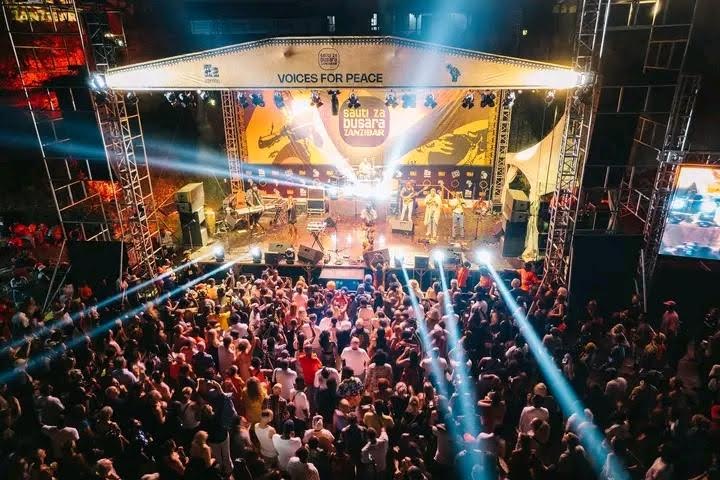
Every February, Stone Town, the UNESCO World Heritage port city of Zanzibar erupts in a grand celebration of African sound.
Sauti za Busara (Swahili for “Sounds of Wisdom”) is East Africa’s premier music festival, now in its 22nd year.
It brings together hundreds of musicians and thousands of fans from across Africa and the world.
In 2025 (Feb 14–16), the festival’s theme is “Voices for Peace,” underscoring music’s power to unite. Hosted in the coral-stone Old Fort (Ngome Kongwe) and nearby waterfront, Busara fills the streets and stages of Stone Town with concerts, parades and cultural exchange.
Whether you’re a world-music lover or a first-time visitor, you’ll find yourself swept up in the joyful, communal atmosphere of Zanzibar’s most iconic festival – dancing to taarab tunes, Afrobeat grooves, singeli beats and more under the African moon.
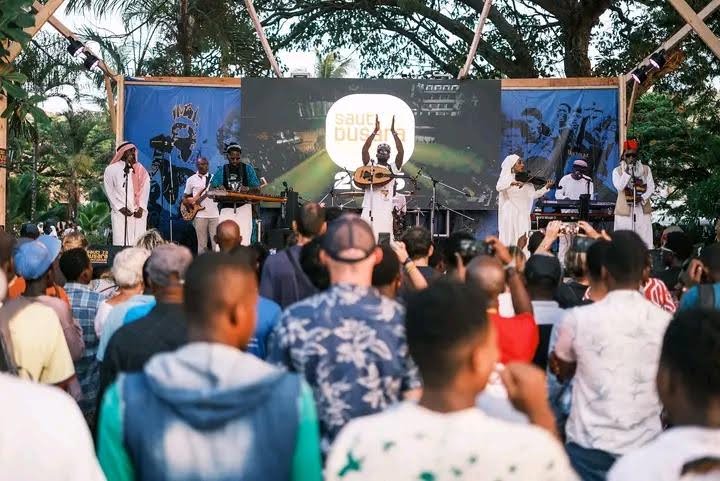
A Unique Stage in Stone Town
The heart of Sauti za Busara is the Old Fort (Ngome Kongwe), a 17th-century Omani fortress with UNESCO World Heritage status. Its weathered coral walls and shadowy courtyard provide a dramatic backdrop for live music. Over the past two decades, Busara has “brought the Old Fort to life,” igniting a fusion of history and rhythm.
Inside the fort’s grounds are two main stages; outside, a third (free) stage in the nearby Forodhani Gardens offers sunset performances against the Indian Ocean.
Imagine dancing at a seaside concert as the sky turns gold, it’s an experience you won’t forget.
This setting is part of the festival’s magic. Stone Town’s narrow alleys, spice markets and ornate wooden doors are steps away, adding to the sense of place. In fact, festival director Yusuf Mahmoud emphasizes Busara’s “historic and unique location” among the reasons people return year after year.
Concerts begin in the afternoon and run late into the night, so you can wander between stages, mingle with local music fans, and soak up the ambience of stone-carved Zanzibar.
Expect both the fort’s intimate interior and the tropical oceanfront to feel like a continuous party – one night in 2024 even included a “Swahili Encounters” jam session, where artists from Tanzania, Kenya, Zimbabwe and beyond improvised together to kick off the evening.
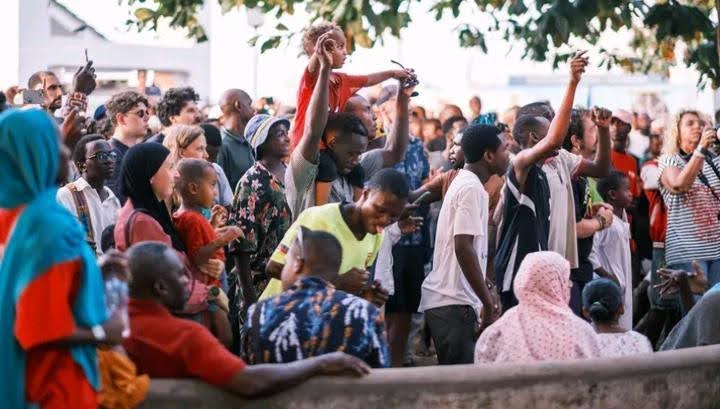
A Tapestry of African Sounds
Musically, Sauti za Busara spans the continent. From the ancestral strains of coastal East African music to the latest Afro-pop, you’ll hear an incredible variety of genres.
Every year the lineup deliberately mixes styles and regions, with emphasis on local and female artists. For example, the 2024 (21st) edition’s theme was “Moving Diversity,” and organizers promised a “musical journey across Africa”.
Indeed, past lineups have featured Zanzibar taarab ensembles, Tanzanian Bongo Flava singers, Congolese rumba stars, West African afrobeat bands, southern African fusion groups, and more.
In 2025, headliners were Thandiswa (South Africa), Blinky Bill (Kenya), Christian Bella & Malaika Band (Tanzania) and Bokani Dyer (South Africa), among others. You might also spot talents like Zanzibar Taarab Heritage Ensemble, The Zawose Queens (Tanzania/UK), or Rwanda’s Boukouru, ensuring something for every musical taste.
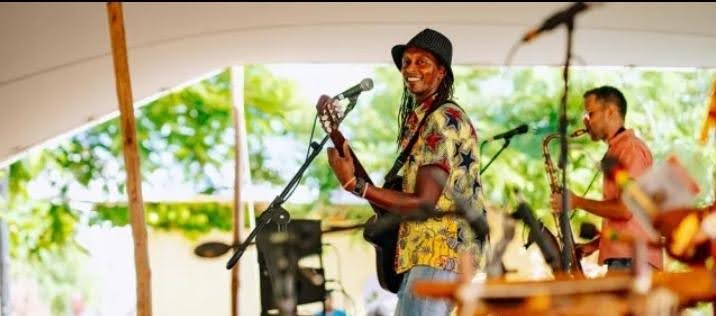
Highlights you may encounter include:
Taarab and Swahili fusion: Zanzibar’s soul music. Expect the rich melodies of oud, violin and kanun (zither) alongside jazz and reggae influences. Local legends like Siti & The Band and the Tausi Women’s Taarab Ensemble often headline with their island-infused sound. (In fact, many Busara performers go on to wider fame – Siti’s band and Tausi Taarab began in Zanzibar before touring globally.)
Singeli: Tanzania’s hottest electronic dance wave. This pounding style (with rapid-fire rap and minimalist beats) exploded at Busara in 2024. Young stars like Sholo Mwamba had crowds “go berserk” with their non-stop singeli sets. Don’t be surprised if a performer pulls the audience into singeli’s call-and-response chants and spontaneous dances!
Afrobeat, Highlife, and African Fusion: Busara brings West and Central Africa to Stone Town. In recent years the Brother Moves On (South Africa) dazzled with Afrofuturistic rock, and Congolese virtuoso Francesco Nchikala set the stage on fire with funk-infused soukous guitar. The 2025 lineup features Mádé Kuti (Nigeria, son of Fela) with his afrobeat big band, as well as Cameroon’s Joyce Babatunde.
Contemporary Pop and Hip-Hop: Tanzania’s new scene is well represented. Christian Bella (famous for Bongo Flava and rumba) and songstress Frida Amani are on the program. Kenyan beats and Senegalese rhythms often weave in too, making each set a blend of old and new.
Female-led Acts and Young Voices: Diversity is core to Busara’s mission. Organizers note they “shine the spotlight on women artists and young, emerging talents”. In 2024, for example, Réunion Island’s Sibu Manaï and Kenya’s Muhonja joined a mainly African lineup. In 2025, you can expect at least one headliner-led band by a female star (Thandiswa from South Africa) and many more women on stage. This makes the festival especially empowering and fun – women dance and sing along with everyone.
Beyond the main stage shows, the programming includes workshops and jam sessions, like the famous “Swahili Encounters” ensemble where musicians from different countries rehearse together before performing. You might stumble upon a spontaneous street performance or a daytime concert at the coastal Forodhani Gardens – all adding to the sense of discovery.
Carnival Parade and Community Spirit
No less exciting than the concerts is the Carnival Parade that kicks off Busara each year. On the first day, the festival transports Stone Town’s narrow lanes into a street carnival of Beni tradition. Colorful floats, dancers in tribal costumes, brass bands and stilt-walkers wind through the alleys to live music. One recent parade even involved 219 local artists, from school drumming groups and acrobats to mwanandege (umbrella girls) and breakdancers. It’s a joyous community spectacle – tourists line the sidewalks alongside Zanzibaris, snapping photos and clapping. The energy is contagious and completely free to watch.
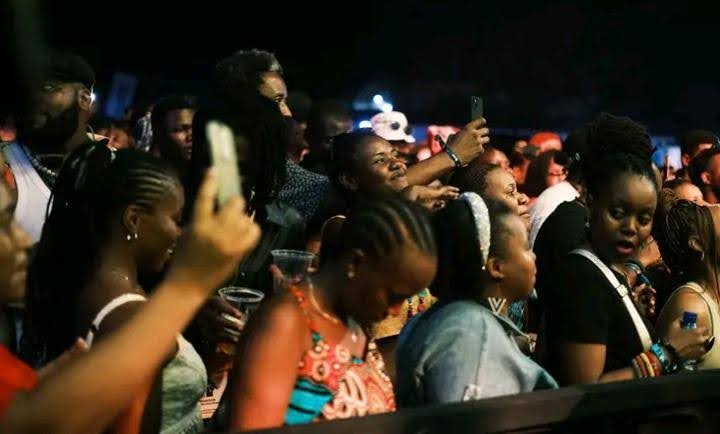
Behind the scenes, Busara Promotions – the local NGO organizer – makes sure the festival gives back. Over 20 years the event has trained hundreds of young people in sound engineering, lighting, logistics and marketing.
As director Journey Ramadhan notes, Sauti za Busara has put “Zanzibar on the map of international festivals,” while “strengthening the local economy and… providing people with skills and livelihoods.”
Vendors sell artisanal crafts and Zanzibar specialties, hotels fill up with guests, and the city buzzes with opportunity. So by attending, you not only enjoy an amazing show; you help support artists and workers across the island.
Highlights from Recent Years
Since its founding in 2003, Busara has become a platform for rising stars.
Many acts first discovered here have gone on to global stages. For example, veteran performances by Bi Kidude (the grand dame of Zanzibari taarab) and Culture Musical Club have cemented Busara’s roots in tradition, while younger bands like Unguja’s Jagwa Music or Tanzania’s Aswat reggae ensemble have taken modern Tanzanian sounds abroad.
Looking at the last couple of editions gives a taste of Busara’s dynamism. In 2024 (the 21st festival) highlights included Selmor Mtukudzi (Zimbabwe) reinterpreting her late father Oliver Mtukudzi’s classics, Siti & The Band enthralling the crowd with taarab-fusion melodies, and the Dar es Salaam dance phenomenon Sholo Mwamba igniting a singeli frenzy. The streets even saw the return of an old favorite, the full-scale Carnival Parade, after a hiatus, delighting locals and visitors alike.
Why You Should Go
Sauti za Busara is a must-do for culture-loving travelers. It’s rare to find a festival that so effortlessly merges place, people and purpose. Here’s what makes it special:
Rich Culture & History: You’ll be celebrating in Stone Town’s UNESCO-listed setting. In between sets, explore its spice-scented markets, carved wooden doors and fascinating history – as one guide puts it, “Stone Town calls you with its timeless allure”.
Spectacular Music: Hundreds of musicians (over 400 in 2024) perform on multiple stages. You get a crash course in African music – from the melancholy strains of taarab to frenetic African funk and everything in between – all for a few days. It’s an educational as well as entertaining experience.
Warm International Vibe: Although the setting is traditional, the audience is cosmopolitan. You’ll meet people from across the globe all dancing together. Longtime director Yusuf Mahmoud credits the festival’s success to “everyone who makes it happen… the public” – so expect a friendly, festive crowd where you’ll make new friends.
Local Impact: By coming, you support Zanzibar. The festival boosts the economy through tourism and creates jobs (hotels, transport, food vendors all benefit). Organizers even highlight Busara’s role in building a more inclusive society and celebrating cultural heritage. In short, your visit is both fun and meaningful.
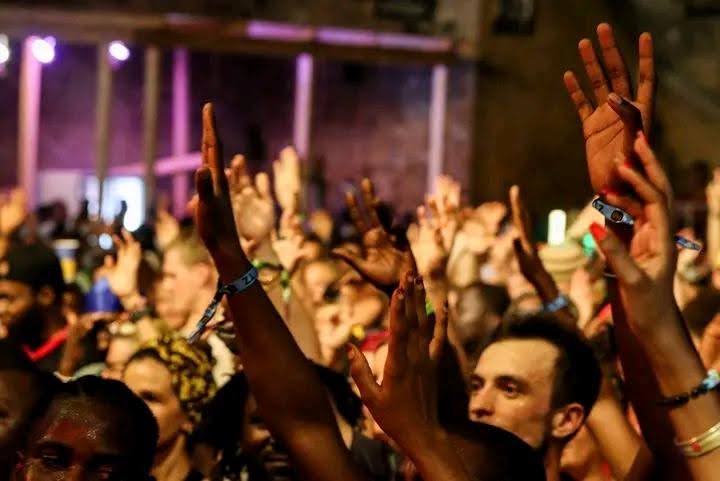
Travel Tips: The festival is family-friendly and open-air, so pack light layers and rain gear (February is usually dry, in the low 30°C).
Flights to Zanzibar are easy from mainland Tanzania or via Nairobi/Dubai. Book your hotel in advance – Stone Town and beach resorts can fill up.
Accommodations range from budget hostels to luxury clifftop hotels.
For convenience, note that Busara uses a cashless payment system on site, but local Tanzanian shillings (TZS) and US dollars are widely accepted outside the festival.
Take time to sample Zanzibar’s famous cuisine (fresh seafood, pilau rice, and, of course, plenty of local spices!).
In summary, Sauti za Busara is more than a concert series, it’s a jubilant cultural gathering. You’ll dance to live beats echoing through ancient walls, laugh with new friends under the stars, and learn about Zanzibar’s rich heritage from the music and people.
When festival chairman Simai Said Mohamed says “people come here to experience the beauty of our country, our culture”, he means exactly what you’ll feel as a guest. So pack your dancing shoes and sense of adventure, Zanzibar and Busara await!



